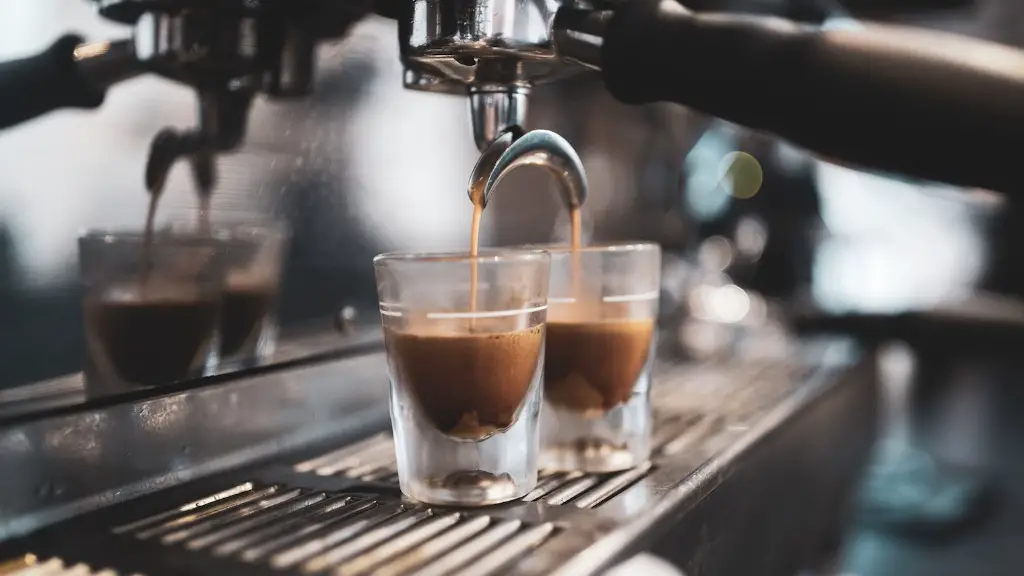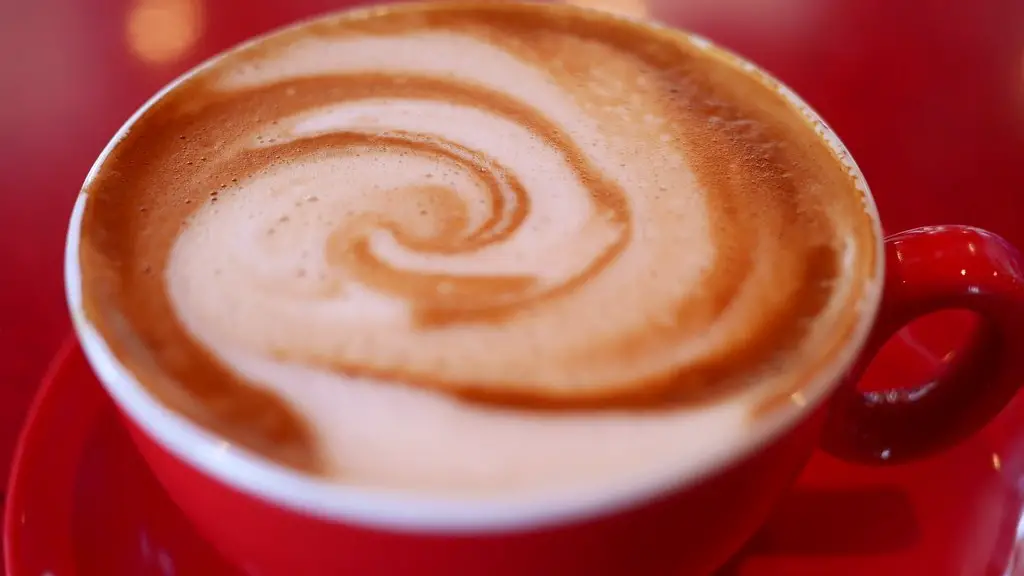Introduction
Lately, coffee has become an integral part of most people’s daily routine and it is now a global phenomenon, with an estimated 2.25 billion cups of coffee consumed daily. But is it the most popular drink globally? The answer is not an easy one as there are numerous factors to consider when looking into the popularity of any hot beverage. From economic backgrounds to cultural preferences, this article looks into the reasons why coffee may or may not be the most popular drink across the world.
The health benefits of coffee
It is no surprise that coffee has its loyal following. Studies reveal that drinking up to three to five cups of coffee a day can be beneficial to your health. Coffee contains numerous antioxidants and other nutrients like riboflavin, manganese and potassium that can be beneficial to your circulatory, digestive and nervous systems. Additionally, coffee helps boost cognitive performance by increasing alertness and improving memory formation. All these are good reasons as to why some people opt for a cup of coffee every morning.
The Role of Affordability
The global community is made up of people from different socio-economic backgrounds and that affects their decision-making. Granular and espresso-based coffees are popular choices for the rising urban population but for households and communities that cannot afford such luxuries, tea is the go-to drink. Tea is lesser expensive and the ubiquity of its availability makes it the ideal choice for a lot of people. In some parts of the world, coffee is becoming more affordable but it is still out of the reach of a lot of people, who opt instead for tea.
Coffee as a Social and Cultural Phenomenon
Not only is coffee a popular beverage choice, it is also a cultural phenomenon that combines both the social and commercial aspects of the beverage. Many coffeehouses now provide social spaces to foster meaningful conversations and host artistic events, ranging from theatre performances to musical provocations. Coffee has become an integral part of our daily lives, providing us an experience unlike any other. Across some parts of the world, people gather around cups of coffee to break bread and share ideas. Because good coffee is sociable, it has easily become one of the most popular beverages available.
Comparison with other Beverages
When it comes to popularity, coffee faces stiff competition from other hot beverages such as tea and cocoa. Tea is the most popular drink in many countries, including England, Japan and China, and the production of the beverage has been the foundation of many countries’ economies. Cocoa is huge industry in some parts of the world, such as South America and Africa, where the consumption and production of the dark, sweet beverage has long been a part of everyday life. As such, it is hard to accurately pinpoint coffee as the most popular drink globally.
Economic Implications of the Coffee Supply Chain
The economic implications of coffee’s popularity are also worth considering. Coffee, like any other industry, is part of complex global network of production, retail and consumption. A majority of coffee is produced by small farmers in developing countries, who have limited bargaining power when it comes to distribution. As such, coffee production is prone to market disruptions, due to middlemen and intermediaries who take advantage of these farmers. This affects the prices of coffee, as well as its quality, making it difficult for coffee-producing countries to build a suitable market for the industry.
Insight and Analysis
When looking into the popularity of coffee, it is important to take into account the health benefits, affordability, cultural significance and economic implications that accompany the beverage. Whereas coffee may be a popular choice for many people, it is hard to definitively declare it as the ‘most popular’ drink globally. Nevertheless, due to its social and cultural significance, coffee remains as a popular choice for many people around the world.
Other Perspectives on the Popularity of Coffee
The Advent of Speciality Coffee
Over the last few decades, the emergence of the specialty coffee market has been a well-received push towards the democratisation of coffee around the world. Specialty coffee is a broad term generally used to refer to the cultivation and brewing processes used for this specific type of coffee, where emphasis is on quality and care. Small producers and roasters specialise in the production and sales of speciality coffee, giving more consumers access to more diverse tastes and flavours. This has revolutionised the market and how people around the world perceive and enjoy coffee.
The Rise of Coffee-Making as an Art
The rise of speciality coffee has also seen the emergence of numerous coffee competitions, such as the World Barista Championships, the World Coffee Roasting Championships, and the World Brewers Cup, amongst many other regional and global events. These competitions are driving markets and changing people’s expectations when it comes to coffee. And for the better – baristas and roasters are now employed as specialists who are trained and knowledgeable in their field. In that sense, the popularity of coffee has risen from a beverage to a form of art and its trade is becoming more regulated and respected.
Coffee Advertising and Consumption Trends
In this digital age, it is easy to easily observe consumers’ drinks preferences. The rise of online advertisements, coupled with being able to access the right type of information and data, have seen a huge shift in the marketing of coffee. Many large coffee chains now produce adverts that are directed towards different demographics, which has helped make coffee an attractive option for many people. All these have been helpful in driving coffee’s prevalence in many countries.
The Popularity of Barista-Made Coffee
The proliferation of coffee shops around the world and especially in cities is a testament to the love people have for coffee. The rise of speciality coffee have given people access to different coffee experiences, making it possible for them to sample different coffee flavours from around the world. The presence of baristas, who are specialists in making coffee, is what sets coffee shops apart from regular food and beverage establishments. Furthermore, the interaction between baristas and customers is what makes the coffee-drinking experience more special, making barista-made coffee are a popular choice.
The Impact of Gender and Age on Coffee Consumption
Gender
Studies have suggested that men are more likely to consume coffee than women, but women are more particular when it comes to coffee consumption currencies. Women are more likely to take the time to consider and prioritize flavour, source, preparation and cost of the coffee, with some surveys suggesting that women consume more speciality coffee than men. This suggests that consumption trends are subject to personal preferences, rather than gender.
Age
Coffee consumption increases as people get older and when it comes to age, young adults are the most frequent coffee drinkers. With the rise of the gig economy and the prevalence of work-from-home jobs, millennials and Gen-Zers are ideal consumers for coffee drinking. With more people having access to coffee and speciality coffee, the breadth of understanding and appreciation for it is also exponentially increasing.
Environmental Factors Influencing Coffee Consumption
Climate Change
Coffee is a crop that is heavily affected by changes in climate and extreme weather conditions. As more people become aware of its environmental impacts and the issue of Climate Change become ever more pressing, people may opt for other beverages over already unstable stocks of coffee. Additionally, governments regularly introduce food safety regulations in order to control the spread of diseases, which affects the production and distribution of the beverage.
Resource Availability
Coffee is an agricultural crop, which requires fertile soil, access to water and adequate sunlight to growth. Today, many of the world’s coffee-producing nations are facing a crisis due to over-farming and land degradation, resulting in a decrease in coffee production. This is also reflective in coffee prices; when resources are scarce, coffee prices increase significantly, making it less of a popular option as compared to alternatives.
Political Matters Priming Coffee Popularity
Employment and Opportunity
The coffee industry is an important sector for many countries, offering a plethora of employment opportunities for the local population in countries such as Ethiopia, Colombia, Peru and Brazil. Coffee’s popularity can also be attributed to better and more secure job opportunities for people in such countries, allowing them to earn a living from the production of coffee.
Fair Trade Coffee
The development of fair trade coffee, which allows farmers to earn a fair wage for the coffee they produce, has been instrumental in improving the production of coffee. The direct trade model has gained attention with coffee lovers around the world and it has encouraged farmers in producing countries to re-invest the income they earn towards improving the quality and branding of their coffee. This has helped create more job opportunities for the local population.
Politics of Coffee
Finally, the politics of coffee is another factor that affects the popularity of the beverage. Coffee has been used as a tool for the political opposition in many countries. In places such as Brazil, public coffeehouse have been used as a form of protest citizenship manifestation and many coffeehouses have been used as a platform for lectures and discussion forums, as a place for knowledge exchange and as a loophole of resistance against oppressive regimes.





